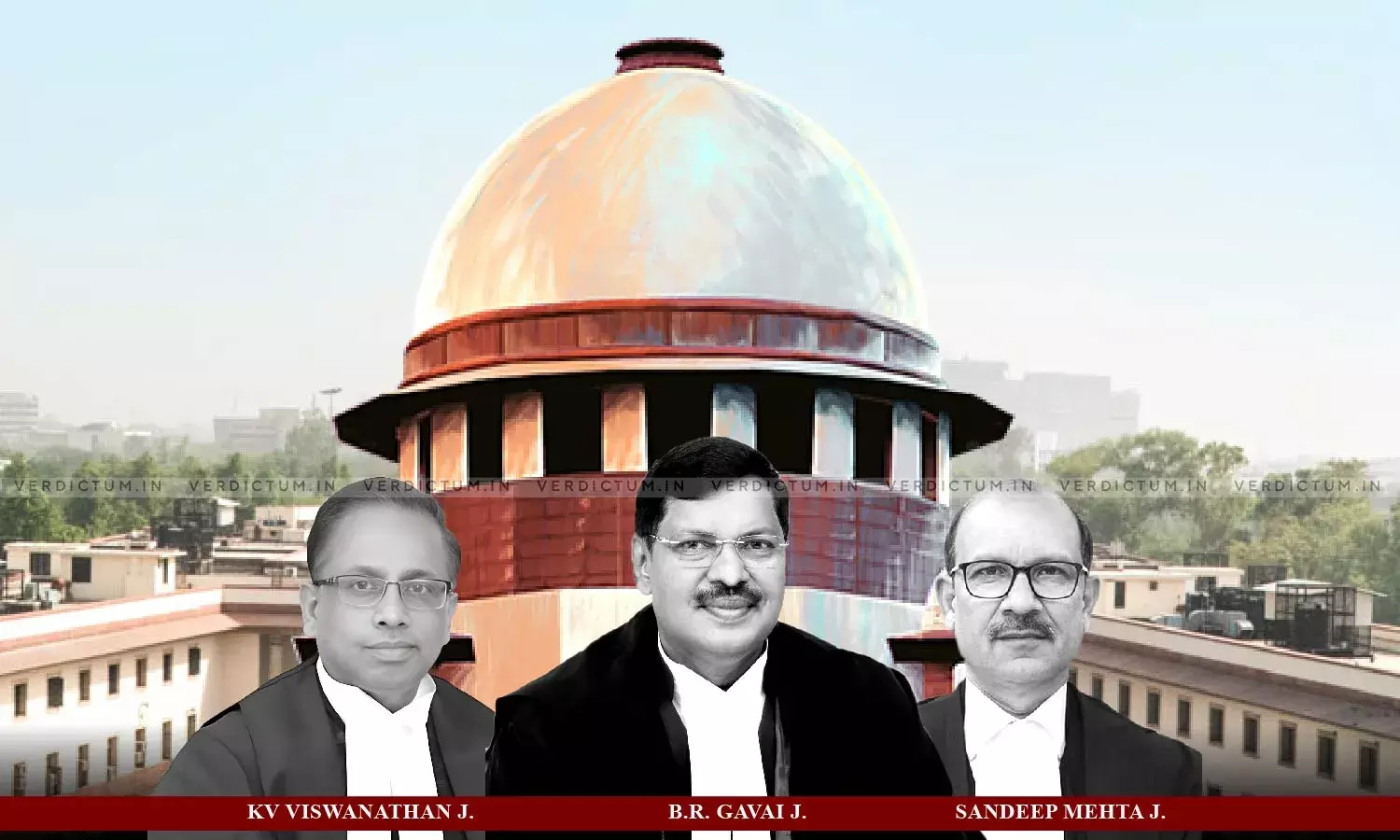Special Court Presided By Sessions Judge Has Jurisdiction to Hear Offences Under IBC: Supreme Court

The Supreme Court has held that a Special Court presided by a Sessions Judge or Additional Sessions Judge has the jurisdiction to hear offences under the Insolvency and Bankruptcy Code.
The Court held that the provision of Section 435 of the Companies Act, 2013 with regard to Special Court would become a part of Section 236(1) of the Code as on the date of its enactment.
In that context, the Bench of Justice BR Gavai and Justice Sandeep Mehta observed that, "It is held that the Special Court presided by a Sessions Judge or an Additional Sessions Judge will have jurisdiction to try the complaint under the Code. However, since the learned single judge of the High Court has not considered the merits of the matter, the matter is remitted to the learned single judge of the High Court for considering the petition of the respondents afresh on merits."
ASG SV Raju, among others, appeared for the petitioner, while AoR Amir Arsiwala, among others, appeared for the respondents.
The impugned order was passed on February 14, 2022, wherein it was observed that the objective of the legislature was not to burden a special court comprising a sessions judge with trials under the IBC.
The High Court ruling came on a plea filed by two individuals assailing a sessions court order issuing summons to them following a complaint filed by the Insolvency and Bankruptcy Board of India (IBBI), a statutory body under the IBC.
The petition before the High Court stated that the sessions judge did not have the jurisdiction to entertain the complaint filed by the IBBI. It noted that as per Section 236 of the IBC, special courts under the Companies Act were empowered to try offences under the IBC as a court of sessions. The petitioners argued that the objective behind Section 236 was a speedy trial of offences, and to achieve the same, two classes of special courts were introduced: one consisting of a judge holding office as sessions or additional sessions judge; and another consisting of metropolitan or judicial magistrate.
They contended that by amending Section 435 of the Companies Act, after Section 236 of the IBC, the legislature intended that for the speedy trial of offences under IBC, courts with metropolitan magistrates or judicial magistrates are deemed to be special courts. The High Court accepted this contention, noting that courts consisting of sessions judges were to try offences under the Companies Act, whereas courts consisting of magistrates were to try offences under Acts other than the Companies Act (including IBC). With these observations, the High Court concluded that the proceedings initiated by the IBBI in the sessions court were not sustainable. The order issuing process against the petitioners was held as being without jurisdiction, unsustainable, and hence quashed.
The Apex Court, disagreeing with the view taken by the High Court, observed that, "If the legislative intent was to give effect to the subsequent amendments in the Companies Act to Section 236(1) of the Code, nothing prevented the legislature from amending Section 236(1) of the Code. The legislature having not done that, the provision with regard to the reference in Section 236(1) of the Code pertaining to Special Court as mentioned in Section 435 of the Companies Act, 2013 stood frozen as on the date of enactment of the Code. As such, the learned Judge of the High Court has erred in holding that in view of the subsequent amendment, the offences under the Code shall be tried only by a Metropolitan Magistrate or a Judicial Magistrate of the First Class."
It was held that the High Court had grossly erred in quashing the complaint only on the ground that it was filed before a Special Court presided by a Sessions Judge.
The appeal was allowed, and the matter was remitted to the Hig Court for considering the petition on merits.
Appearance:
Petitioner: ASG SV Raju, Counsels Rashi Rampal, Apoorv Khatore, AoR Vikas Mehta
Respondents: AoR Amir Arsiwala, Counsel Dhaval Deshpande, AoR Aaditya Aniruddha Pande, Counsels Anand Dilip Landge, Siddharth Dharmadhikari, Bharat Bagla, Sourav Singh, Aditya Krishna, Preet S Phanse, Adarsh Dubey
Cause Title: Insolvency and Bankruptcy Board of India vs Satyanarayan Bankatlal Malu & Ors.
Click here to read/download the Judgment

